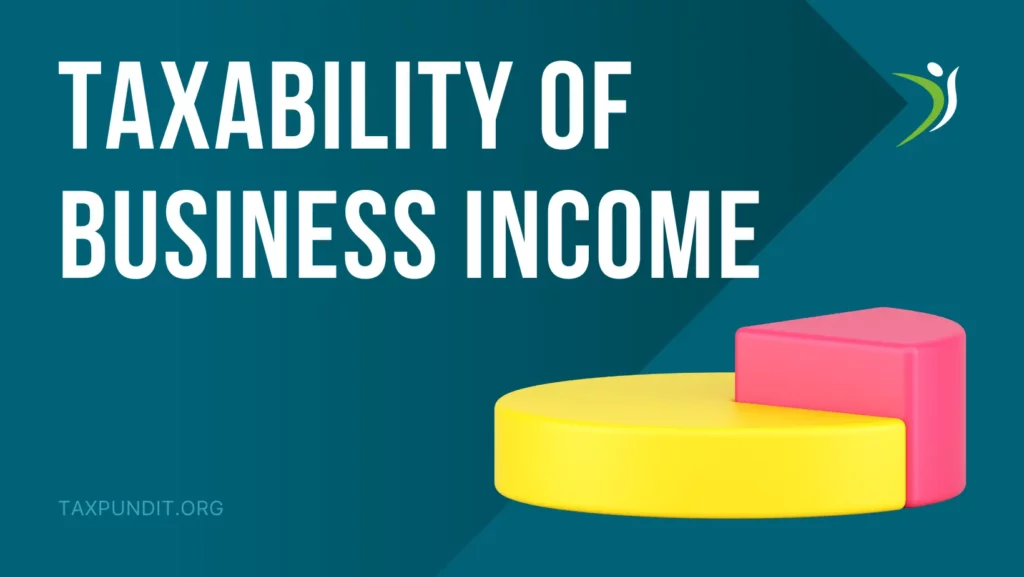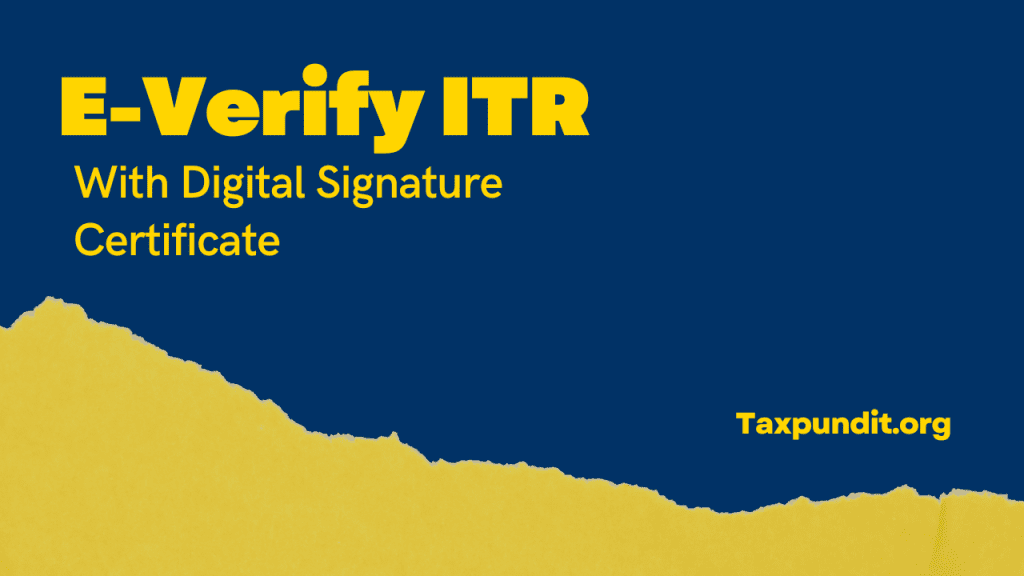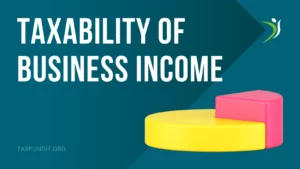Introduction
Taxation is an essential aspect of any country’s economic framework, as it plays a pivotal role in generating revenue for the government. In India, the taxation system is multifaceted, encompassing various aspects of individual and corporate income, including the taxation of business income. Business income taxation in India is subject to a complex set of rules and regulations that are continually evolving to meet the changing economic landscape. This article explores the taxability of business income in India, focusing on the key principles, tax rates, deductions, and compliance requirements.
Key Principles of Business Income Taxation
In India, business income taxation primarily falls under the purview of the Income Tax Act, 1961. Business income refers to any profit or gains arising from a business or profession carried on in India. The key principles governing the taxability of business income are as follows:
Residential Status: One of the fundamental aspects of determining taxability is an individual’s residential status. Individuals can be classified as residents, non-residents, or not ordinarily residents, each with different tax implications. Resident individuals are taxed on their global income, while non-residents are subject to tax only on income earned within India.
Business or Profession: The Income Tax Act distinguishes between income derived from a business and income from a profession. While the tax treatment is similar for both, it is essential to classify the source of income correctly.
Income Computation: Business income is computed based on the profit and loss statement prepared by the taxpayer in accordance with accounting standards. The computation may also involve adjustments for expenses, depreciation, and deductions as provided under the Income Tax Act.
Tax Rates for Business Income
The tax rates applicable to business income in India depend on the type of taxpayer and the quantum of income. The tax rates for various categories of taxpayers for Asstt Year 2024-25 are as follows:
- Domestic Companies: Domestic companies are subject to a flat corporate tax rate of 30% on their total income. However, companies with a turnover of up to INR 400 crore receive a reduced tax rate of 25%.
- Individual and HUF (Hindu Undivided Family) Taxpayers: Individual and HUF taxpayers are subject to progressive tax rates based on their income slabs. The tax rates for the financial year 2023-24 for new regime are:
- Up to INR 3,00,000: Nil
- INR 3,00,001 to INR 6,00,000: 5% on income which exceeds Rs 3,00,000
- INR 6,00,001 to INR 9,00,000: Rs. 15,000 + 10% on income more than Rs 6,00,000
- INR 9,00,9001 to INR 12,00,000: Rs. 45,000 + 15% on income more than Rs 9,00,000
- INR 12,00,001 to INR 15,00,000: Rs. 90,000 + 20% on income more than Rs 12,00,000
- Above INR 15,00,000: Rs. 150,000 + 30% on income more than Rs 15,00,000
- Partnership Firms and LLPs: For the Assessment Years 2023-24 & 2024-25, a partnership firm (including LLP) is taxable at 30%.
- Presumptive Taxation: Some businesses, such as small traders and professionals, have the option to opt for presumptive taxation. Under this scheme, income is presumed based on a certain percentage of turnover, and the taxpayer is taxed accordingly.
Deductions and Exemptions
The Income Tax Act provides various deductions and exemptions to businesses to reduce their taxable income. These include:
Depreciation: Businesses can claim depreciation on assets used for business purposes, which helps in reducing the taxable income. The depreciation rates vary for different types of assets.
Business Expenses: Ordinary and necessary business expenses incurred for the purpose of earning income are deductible. These expenses may include rent, salaries, office supplies, and travel expenses.
Deductions Under Section 80: Section 80 of the Income Tax Act provides for deductions on specific investments and expenditures. For instance, deductions are available for contributions to the Employees’ Provident Fund (EPF), Public Provident Fund (PPF), and life insurance premiums.
Export Promotion Schemes: Businesses engaged in export activities may benefit from various tax incentives and exemptions under schemes like the Export Promotion Capital Goods (EPCG) and Export Oriented Unit (EOU) schemes.
Startup and MSME Benefits: The government has introduced several tax incentives and exemptions for startups and micro, small, and medium-sized enterprises (MSMEs) to promote entrepreneurship and economic growth.
Read our Article on Restrospective Applicability of Section 153C
Compliance Requirements
Compliance with tax regulations is critical to avoid penalties and legal issues. Businesses in India are required to fulfill various compliance requirements, including:
Filing of Income Tax Returns: All businesses, including companies, partnership firms, and individuals with business income, must file their income tax returns annually by the due date.
Tax Audit: Businesses with turnover exceeding a specified threshold are required to undergo a tax audit, which involves a thorough examination of their financial records by a qualified auditor.
Advance Tax Payments: Taxpayers are required to make advance tax payments in installments during the financial year to ensure timely revenue collection by the government.
Goods and Services Tax (GST): Businesses are also subject to GST compliance, which includes filing GST returns, collecting and remitting GST, and maintaining proper records.
Transfer Pricing Compliance: Multinational companies operating in India are required to adhere to transfer pricing regulations to ensure that transactions with related parties are conducted at arm’s length prices.
Challenges and Recent Developments
The taxation of business income in India has faced several challenges, and the government has undertaken various reforms to simplify and streamline the tax system. Some recent developments and challenges include:
Digital Taxation: The digital economy has posed challenges in taxing income generated from online platforms and e-commerce. India has introduced the Equalization Levy to tax certain digital transactions.
GST Implementation: The implementation of the Goods and Services Tax (GST) in 2017 was a significant reform in indirect taxation. While it aimed to simplify the tax system, there have been teething issues and changes in compliance requirements.
Base Erosion and Profit Shifting (BEPS): India has aligned its tax laws with international standards to combat BEPS by introducing measures like Country-by-Country Reporting (CbCR) and the Multilateral Instrument (MLI).
Taxation of Dividend Income: Changes in the taxation of dividend income have been a subject of debate, with varying tax rates and exemptions for different types of shareholders.
Conclusion
The taxability of business income in India is a complex and evolving process. The government continually reviews and amends tax laws to adapt to changing economic realities and international standards. Businesses need to stay abreast of these changes and ensure compliance with tax regulations to avoid legal issues and maximize their tax efficiency. As the Indian economy continues to grow and evolve, the taxation of business income will remain a critical aspect of revenue generation and economic development.
About Taxpundit Team
Our team consists of highly qualified, experienced and knowledgeable industry professionals that are passionate and dedicated to our clients. We provide the best possible service to our clients in a timely and effective manner, whilst always adhering to the highest levels of quality.











